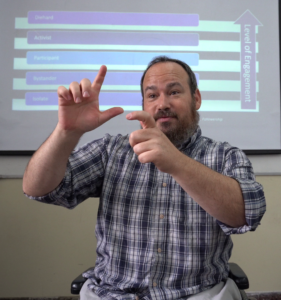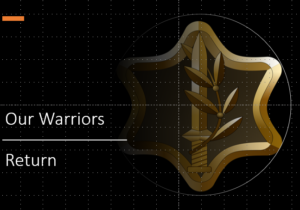As Simon Sinek notes – one inherent paradox of humanity is the conflict between self and the group. Our relationships depend on our locus of focus and its impact on our decision to act – for self, for self-aligned groups, and groups other than self. As Hillel used to say:
If I am not for myself, who is for me? But if I am for my own self [only], what am I? And if not now, when? (Pirkei Avot – Chapters of the Fathers – 1:14)
Interestingly, as Sinek suggests, the paradox is between our focus on self or others and when to act for self or others. Timing is important.
On Sukkot, we are asked to leave the comfort of our homes for an extended period of time and expose ourselves to the elements. Naturally, we contemplate this move in terms of self – the impact of natural elements like wind, rain, dew, wild animals, sunshine, etc. on our comfort and safety.
But we also invite others into our Sukkah. After all, it is the Feast of the Ingathering – when Jews would pilgrimage to Jerusalem during the time of the Temple. They would celebrate the harvest and hear the king read selections from the Book of Deuteronomy (the Hakhel ceremony).
This ingathering exposed us to many different elements – ideas and beliefs – that might not align with ours. We were brought together to learn and contemplate our sense of self, as the King read passages connected to our history and about our national belief in one God. To remind us that, despite our differences, we were one People – one Nation.
Unfortunately, this holiday season we cannot get together and experience the ingathering of people holding different ideas and beliefs. And we are worse off for it. I hope that, as we are alone in our booths remembering just how much our existence is out of our control, we also take the time to consider how differing opinions are as inherent to our mutual history and as ancient as the Exodus and everything that has shaped the Jewish nation since.
While we do this, we should consider the acts we intend for self and for others.
I hope that, as we spend our Sukkot with our nuclear families, we take time to contemplate our relationships with those we love, those who are “us” and those we see as “them.”
The Sefer HaChinuch teaches us that the Four Species we shake on Sukkot represent different parts of our body. The Etrog (Citron) represents the heart. The Lulav (Date Palm Branch) the spinal cord. The Hadasim (Myrtle) stands for the eyes and the Willow for the mouth.
In our hearts, we should find the ability to do good and give of ourselves – even for those who we would not normally let into our heart – just like the Etrog provides a strong smell and taste to all who are near. Our spines should have the flexibility and fortitude to do what is right and follow the path of truth – just as the Lulav stands straight but also bends rather than breaks when shaken. Our eyes should see reality for what it is rather than what we wish it be – to check, recheck, and then check again the facts just as the Hadas must have three leaves. And our mouths should be used to express ourselves so others can understand that we are here, we are showing up, despite our differences – like the Willow which we cannot taste nor smell but is essential as part of the Four Species.
As we celebrate this Shabbat and the holiday of Sukkot, it is important to remember that the outcome of our actions depends on how we think – as we sing each Shabbat:
The final act begins in thought. (Lecha Dodi 3:4)
Perhaps, if we do this, we will find a return to mutual understanding, even if we cannot always act for each other.
Shabbat Shalom and Chag Sukkot Sameach!




